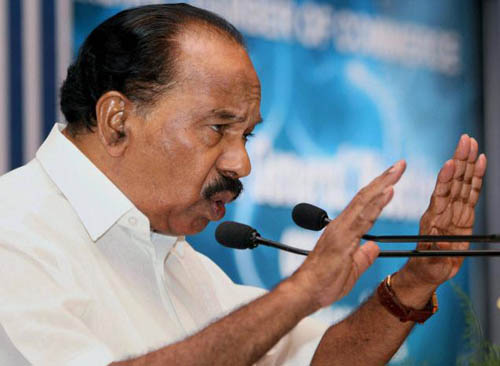
New Delhi, August 1: The newly-appointed Power Minister Veerappa Moily on Wednesday refrained from blaming States for overdrawing electricity that may have led to the collapse of the three grids on Tuesday and said he will focus on combating the many troubles that are facing the sector.
Mr. Moily, who took charge of the ministry on Wednesday morning, said that he would take stock of the situation and start working on clearing the hurdles facing the sector.
“First thing is to stabilise the grid and it has to sustain. For that we will work out a proper strategy,” he told reporters.
Refraining from blaming the States for overdrawing the electricity from grids and not adhering to a discipline, Mr. Moily said he did not want to start his innings with a blame game.
“I don’t want to start with the blame game...at the appropriate time, we will find out short-term and medium-term solutions,” he said.
Taking over the reins of the ministry at a time when it is steeped in crisis, Mr. Moily will have to address the issues ranging from the failure of the three grids that plunged 21 States into darkness, to fuel shortages and the financial health of the distribution companies.
“I always like challenges in life...these things (electricity transmission and fuel issues) are very sensitive rather hyper sensitive in the sector, problems will crop up at the same time how we combat these problems that becomes a challenge,” Mr. Moily said.




Comments
Add new comment